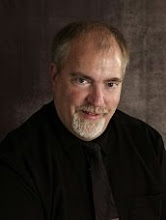I heart NY

I had every intention of posting a blog last weekend while in New York City. However, the time I had set aside for writing—Monday after our Broadway Classroom workshop—became suddenly filled with a surprise opportunity. The producer of CBS’ Early Show saw our group’s name on a welcome sign at Planet Hollywood, googled the school name and eventually made contact with me so that our Thespians could be bussed over to CBS studios in the morning and make several on-camera appearances. Since Oscar nominations were to be announced that morning, he thought it might be cool to have our actors discuss our favorites. To make a long story short, little did we know that some travel business was going to share the camera with us—and they had several bikini models that the cameramen couldn’t take their focus away from. I was ready, though. I wanted to praise the movie “Juno” for daring to show that a pregnant teenage girl has more “choice” than to get an abortion or to become a welfare queen, but that she can give the baby up for adoption. I was ready to say that if people are really “pro-choice” then they should see what one of the “choices” actually is, and if they are opposed to the message of “Juno,” then that shows them to be really “pro-abortion.” So now I am happy to report that I went and saw “Juno” on Saturday and loved it. I pray that more “inconvenient pregnancies” end the way that Juno’s did, and not with the murder of a child.
Other notes of historical interest on this educational field trip were numerous. On our all-day tour of Manhattan, we enjoyed the knowledge shared by our 71-year-old tour guide. We took a water taxi ride near the Statue of Liberty and Ellis Island, and were reminded about the great number of our grandparents or great-grandparents whose first glimpse of America was there as they entered as immigrants and began to become Americans. I thought about how immigration is such a large issue among Republican candidates for the presidency this year, and the talk is not very receptive. On the other hand, immigrants themselves have changed. No longer do they come with the same intention of becoming American citizens, merely to enjoy the benefits of our economy and our government and our schools.
We exited the bus at Wall Street, where the Dutch actually built a wall to fortify their settlement against the Indians and against the British. Now, of course, it is home to the New York Stock Exchange. Wall Street itself is very narrow—suitable for pedestrian traffic only—and quite cavernous. I reflected on how important the stock market has been in history, how the 1920’s produced paper wealth that disappeared in an instant in October 1929. While we were in New York, the markets began a strange week of precipitous decline followed by a modest rally. No doubt the economy will be a huge issue in this year’s election. Although I didn’t see any Hoovervilles under the Brooklyn Bridge, if people perceive that the economy is in recession, they will more than likely “change” in favor of another New Deal socialist who promises more government intervention in such areas as health care.
Our tour continued to the site of the World Trade Center, where construction is underway on the new Freedom Tower. The new spire will reach 1776 feet, in commemoration of the Declaration of Independence, and the footprints of the WTC will be visible as a memorial to 9-11-01. It’s hard to imagine what that day must have been like as we stand and reflect. I wonder if its impact has faded away as time has passed, and whether Americans collectively imagine that wishing for “peace” will mean that the war against Islamic jihad is over. Many of this year’s candidates seem to harbor such hope, but not warriors like John McCain and Rudy Giuliani. As we entered a church where George Washington had his own presidential pew, there were memorials to the citizens and first responders who lost their lives on 9-11. I am praying for a leader who will not be quick to leave the job of justice undone, who will refuse to quit, as was the tenacity of our first president.
Today’s tour takes us through Harlem, a neighborhood with a rich history among African-Americans. We see the Apollo theatre, where most renowned black entertainers got their start when most other places allowed whites only. Our guide points out where Malcolm X was shot. Somewhat removed historically but close in geographical proximity is the tomb of Ulysses S. Grant, whose ferocity in pursuing victory in the civil war resulted in the abolition of slavery and freedom for African-Americans throughout the land. We tour the cathedral of St. John the Divine, a massive structure, a place of exquisite beauty. Beside the church is the “Peace monument,” which is pictured above. As our guide shares the information on the descriptive plaque, we hear of how it symbolizes the triumph of good over evil, and the focus of the structure are not the peaceful giraffes, but the figure of the archangel Michael slaying the dragon. I reflect on how it all fits together. Evil, like slavery, doesn’t give up its territory without a fight. Here in Harlem, African-Americans have a monument to “peace” that reminds them that as slaves, they could have had “peace” by keeping in their place and obeying their servants. Instead, they chose to struggle and fight against evil. I wonder if Americans will have to relearn this lesson every time freedom is threatened by its enemies.
This is been a sample of the many historical sights we were privileged to see on our educational field trip to New York. It’s definitely a fascinating, vibrant city, rich in history and rich in the creation of America.


